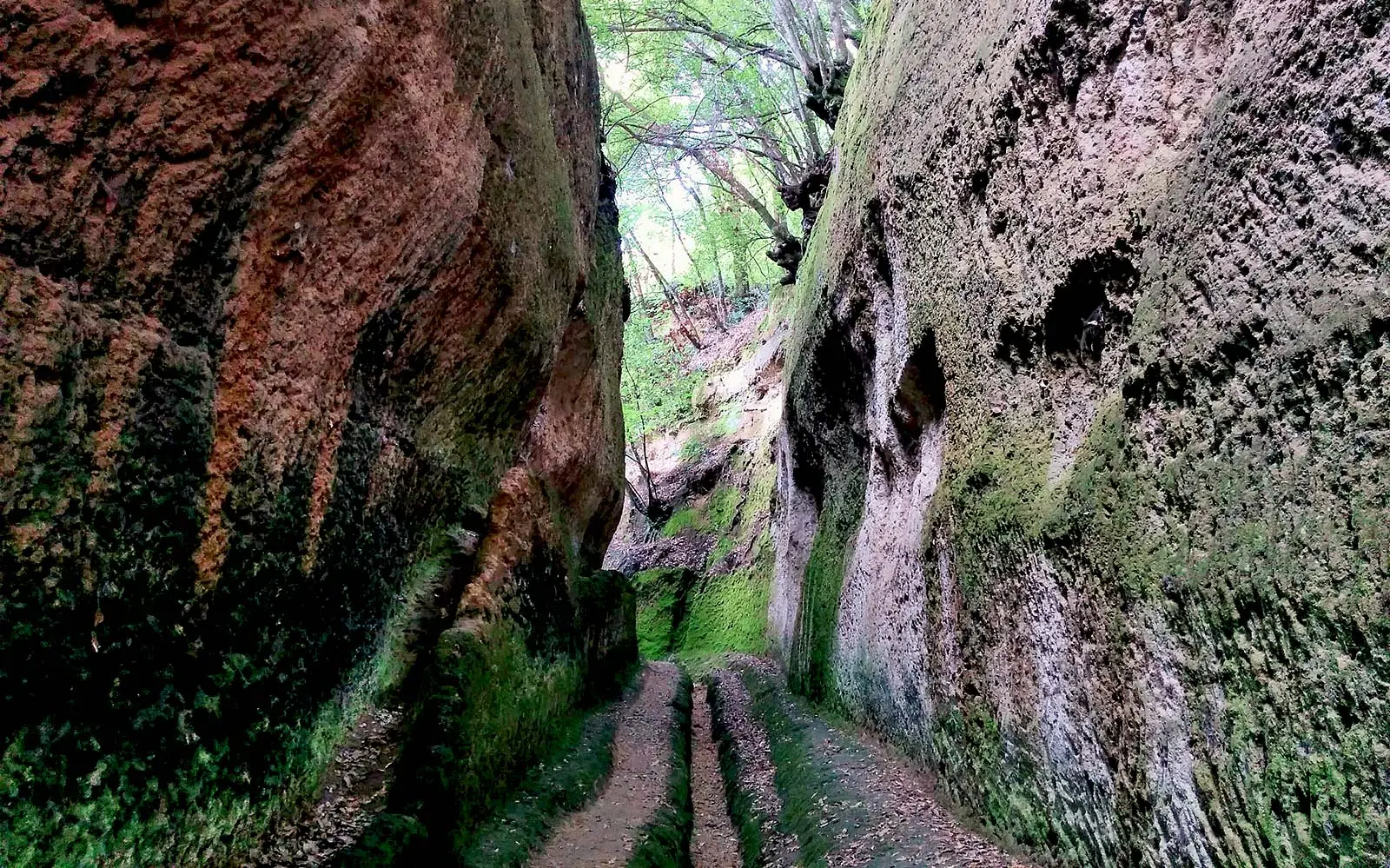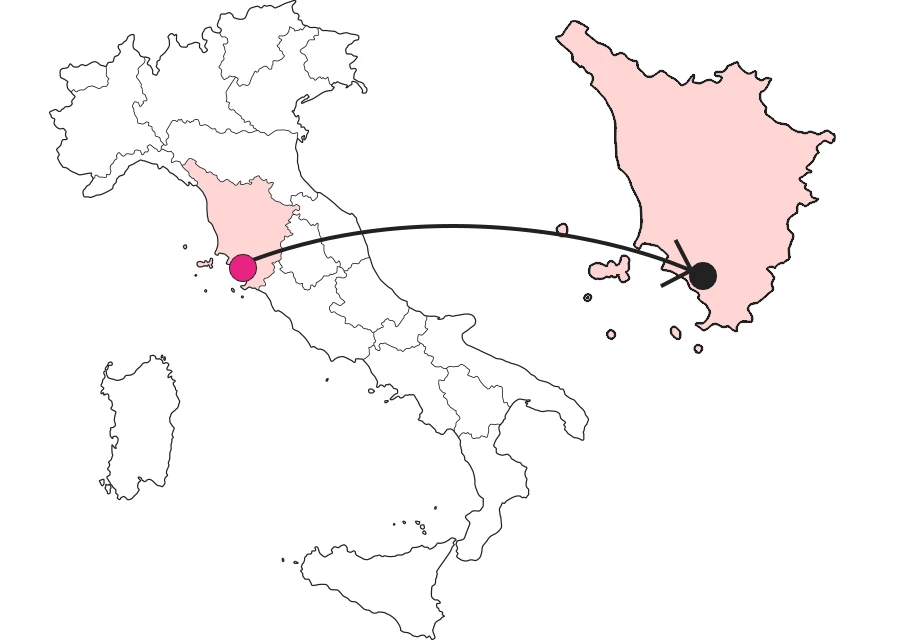SHARRYLAND


Where is

What it is and where it is
The Via Cava di San Giuseppe is a path carved into the tuff that leads from Pitigliano to the town of Sovana. It is part of a real Etruscan road network that delves into the nature and history of this area: vineyards and oak and beech forests hold important archaeological finds. Each Via Cava is diverse and varies from meter to meter. Almost all of them present a curvilinear course, and steps in some sections. On the ground, traces of the past can be discerned: the earth furrowed by the hooves of mules, the carvings on the walls, bring to life suggestions of ancient travelers.
Why it is special
In some stretches the vegetation creates plays of light and shadow on the high walls, and the smells in the air are unforgettable: the smell of plants, moss, earth, as well as some of the blooms present and the rocks themselves make the walk a real plunge into the heart of the earth. The silence, the rich vegetation, the ancient carvings from different eras, the smells you breathe there: in just a few kilometers the feeling is that of walking an important path, getting closer to our history and our origins.
Not to be missed
The Via Cava di San Giuseppe passes through an area rich in Etruscan necropolis. A few meters from the beginning of the path, starting from Pitigliano, we encounter the Necropolis of San Giuseppe. Among the many tombs found on this plateau, one stands out: in fact, it is the only one that has a base of tuffaceous blocks. The tomb is mound-shaped and dates back to the 7th to 6th centuries BC.
A bit of history
The origin of the Vie Cave is due to the Etruscan people. The area, in fact, is populated not only by these artificial canyons but also by Etruscan necropolises placed on top of the tuffaceous ribs or behind the walls. In the centuries to come, the Vie Cave remained central to the movements of wayfarers and merchants within the Maremma, so much so that even in the 1960s men, mules and horses regularly frequented them. Today, freight passes by other routes, while trekking, nature and history lovers are concentrated here, ready to marvel and enjoy every step.
Curiosities
The many necropolises suggest that, in addition to their practical function, the Vie Cave had strong religious and spiritual connotations. Indeed, the Etruscans believed in a connection with mother earth and the world of the dead. In Christian times, in order to alleviate the fear of the darkness of the place, scacciadiavoli appeared : small niches in the walls with painted images of saints. The one that gives its name to this Via Cava is located in a particularly narrow spot, depicting St. Joseph. The one we see is the work of painter Licia Formiconi, a reproduction of an older work dedicated precisely to the saint.
Enter the Map of Italy's Undiscovered Wonders and find treasures where you least expect it... Inspire, Recommend, Share...
Contact
The Map thanks:
Enter the Map of Italy's Undiscovered Wonders and find treasures where you least expect it... Inspire, Recommend, Share...
Where is

Contact



